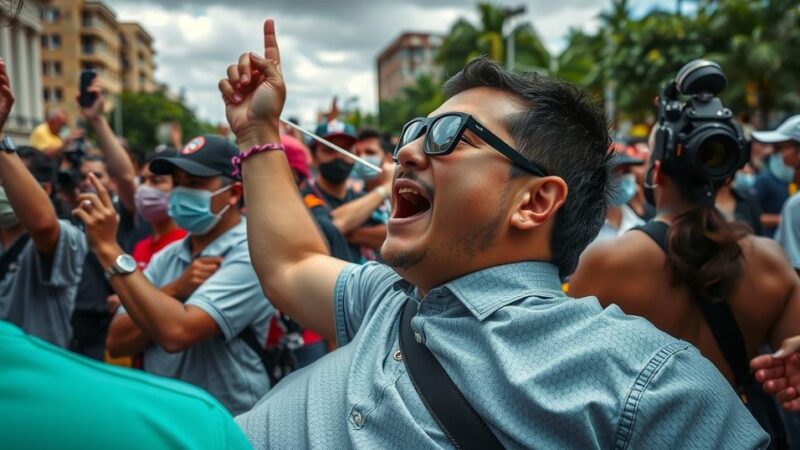Wendy Osirus, the Haitian ambassador of goodwill, criticized President Abinader’s plan to deport 10,000 undocumented immigrants weekly, cautioning that it promotes unjust practices by migration agents. Osirus revealed that migrants are increasingly fearful and urged the government to consider due process and the contributions of Haitians to the local economy.
Haitian Ambassador of Goodwill and Hope for Haiti in Santiago, Wendy Osirus, has voiced his apprehensions regarding the recent immigration policies instituted by Dominican President Luis Abinader, which aim to repatriate 10,000 undocumented immigrants weekly. Osirus expressed that such measures inadvertently endorse the exploitative behaviors of migration agents, thereby exacerbating the challenges faced by undocumented individuals. “I’m not worried about the trucks, I’m not worried about sending irregular Haitians to Haiti, I’m worried about the practices of the agents now that they have the blessing of the central state,” he stated. He emphasized the heightened fears among migrants, many of whom now refrain from working due to the threat of reprisals. The intensity of arrests in recent months has added to their anxiety, prompting concerns that agents may increasingly transgress the rights of these individuals. Osirus urged for the government to reevaluate its approach, citing adherence to constitutional frameworks and international agreements on repatriation, as well as recognizing the valuable contributions of many Haitians to the Dominican economy. He remarked, “…the Government must always think of due process.”
The current discourse surrounding migration policies in the Dominican Republic reflects a complex interaction between national laws and human rights considerations. Following President Luis Abinader’s edict to repatriate a significant number of undocumented immigrants, stakeholders have raised alarms over the implications for migrants and their treatment by authorities. The backdrop of this situation involves existing treaties and regulations between the Dominican Republic and Haiti regarding migration and deportation, which aim to ensure that actions taken do not infringe upon human rights.
In conclusion, the recent immigration measures implemented by the Dominican Republic’s government have elicited concerns about the rights and safety of undocumented migrants, particularly Haitians. Wendy Osirus’s warnings about the endorsement of harmful practices by migration agents highlight the need for a careful balance between upholding law and ensuring human dignity. An emphasis on due process is essential to prevent violations and acknowledge the contributions of migrants to the economy.
Original Source: dominicantoday.com







